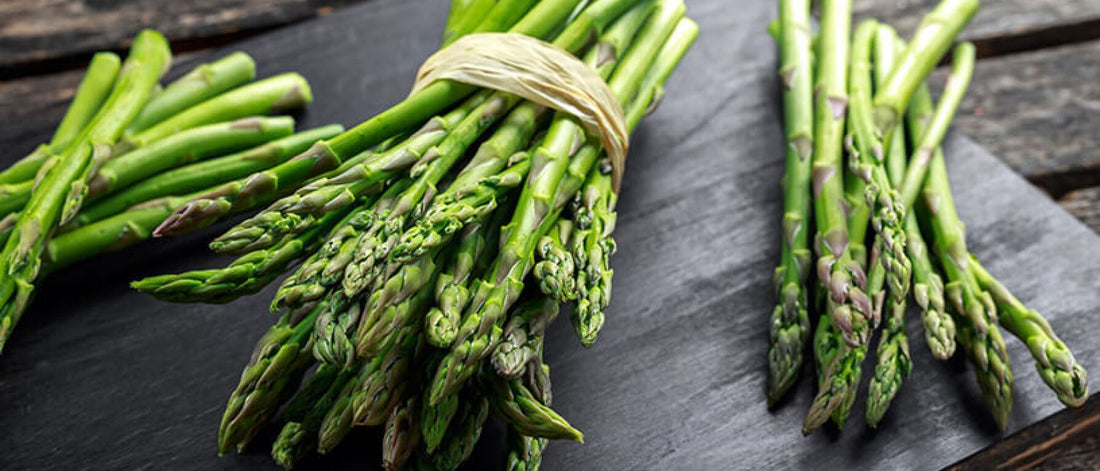Ayurveda divides the year into three seasons based on the predominant dosha, or governing energetic quality, associated with each. Springtime, lasting from March through June, is governed by the Kapha dosha. Kapha combines the elements of earth and water, making Kapha a season of moist, heavy, and oily properties.
You can notice these elemental qualities by observing nature. Spring brings showers and wind, inviting us to wake up to the season. The ground becomes heavy and moist, as plant sprouts prepare to make their debut from underground. Life is infused into nature’s rhythms.
Signs of excess Kapha may include:
In order to balance the Kapha dosha, indulge in the crisp, fresh goodness that the earth is beginning to produce. Seek the flavor profiles of pungent, bitter, and astringent in order to balance the oily, heavy qualities of spring.
*Editor’s Note: The information in this article is intended for your educational use only; does not necessarily reflect the opinions of the Chopra Center's Mind-Body Medical Group; and is not a substitute for professional medical advice, diagnosis, or treatment. Always seek the advice of your physician or other qualified health providers with any questions you may have regarding a medical condition and before undertaking any diet, supplement, fitness, or other health program.
Discover Deepak Chopra’s simple practices for using the healing wisdom of nature to stay energetic and balanced all year long with our self-paced online course, Secrets to Vibrant Health. Learn More.
You can notice these elemental qualities by observing nature. Spring brings showers and wind, inviting us to wake up to the season. The ground becomes heavy and moist, as plant sprouts prepare to make their debut from underground. Life is infused into nature’s rhythms.
Signs of Kapha Imbalance
In Ayurveda, like qualities promote like qualities. Individuals who already have a predominant Kapha constitution may start to feel imbalanced during the spring. Vatas and Pittas are also more prone to Kapha imbalance in the spring.Signs of excess Kapha may include:
- Depression
- Fatigue
- Cough and/or congestion
- Flu
- Weight gain
- Sluggishness
- Constipation
- Acne
- Allergies
How to Balance Kapha: Look Within
Most often, the answer to seasonal health is to look within. As the days lengthen and the air warms, you may notice that the heavy and calorie-dense foods of winter are no longer as appealing. If you tune in to your cravings, it is likely that you will naturally start to gravitate towards the light and fresh spring foods that provide just the anecdote to the season. This is your body following its natural circadian rhythm, or internal clock.In order to balance the Kapha dosha, indulge in the crisp, fresh goodness that the earth is beginning to produce. Seek the flavor profiles of pungent, bitter, and astringent in order to balance the oily, heavy qualities of spring.
Recommended Spring Foods
Try these spring foods to recharge your diet this spring:-
Greens: Dandelion, watercress, spinach, kale, cabbage. If you are able to find microgreens at a grocery store near you, these are especially nutritious and high in chlorophyll—a natural plant compound that helps to scrub and cleanse the intestinal walls.
- Fresh sprouts: Bean sprouts and alfalfa sprouts
- Spring vegetables: Turnips, radishes, asparagus, artichokes, Brussels sprouts, cauliflower, and peas. Lightly steam your vegetables for optimal digestibility.
- Lean protein: Beans, tofu, and eggs. Choose fish, turkey, and chicken in moderation.
- Heating spices: Cayenne pepper, red pepper flakes, black or white pepper, cumin, clove, and cinnamon
- Whole grains: Oats, corn, quinoa, barley (avoid barley if you’re gluten intolerant). Eat all grains sparingly, as traditionally most grains are not harvested until fall.
- Beans and legumes: Garbanzo, pinto, mung, lima, kidney beans, and lentils
- Astringent fruits: Apples, lemons, limes, berries, and cherries. Berries and cherries are especially beneficial in cleansing the lymph system, which aids the body in immunity, brain health, and digestion.
- Beverages: Room temperature or lukewarm water, and teas such as dandelion, ginger, and chai
- Sweeteners: Raw honey (in moderation)
Foods to Avoid
Reduce your intake of foods that are heavy or promote excess moisture, including:- Dairy products (i.e., whole milk, cream, ice cream, pudding)
- Red meat
- Nuts/nut butters
- Fried foods
- Cooking oils and fats
- Bananas
- Sweets
- Breads
- Pasta
Supportive Self-Care
Support your body’s natural tendency during this time to “clean house” and “lighten up” by incorporating nurturing rituals that complement a seasonal diet. Supportive self-care for spring includes the following:- Start the day by drinking 8 oz. of lukewarm water, then continue to sip warm water throughout the day. This helps keep the body well-hydrated and provides a channel for toxins to be expelled.
- Perform abyhanga, or self-massage, just before you shower. Use a natural oil such as sunflower or sunflower oil.
- Use a tongue scraper each morning to remove accumulated ama, a toxic byproduct of digestion. This often appears as a white or brown film left on the tongue after a full night of resting and digesting.
- Incorporate vigorous, aerobic activity such as power walking or light jogging into your morning routine.
- Lighten up. Bring lightness to your spring season by incorporating play. Find time to dance to some music, chase your pets around the yard, or enjoy quality time with your friends and family.
*Editor’s Note: The information in this article is intended for your educational use only; does not necessarily reflect the opinions of the Chopra Center's Mind-Body Medical Group; and is not a substitute for professional medical advice, diagnosis, or treatment. Always seek the advice of your physician or other qualified health providers with any questions you may have regarding a medical condition and before undertaking any diet, supplement, fitness, or other health program.
Discover Deepak Chopra’s simple practices for using the healing wisdom of nature to stay energetic and balanced all year long with our self-paced online course, Secrets to Vibrant Health. Learn More.






















